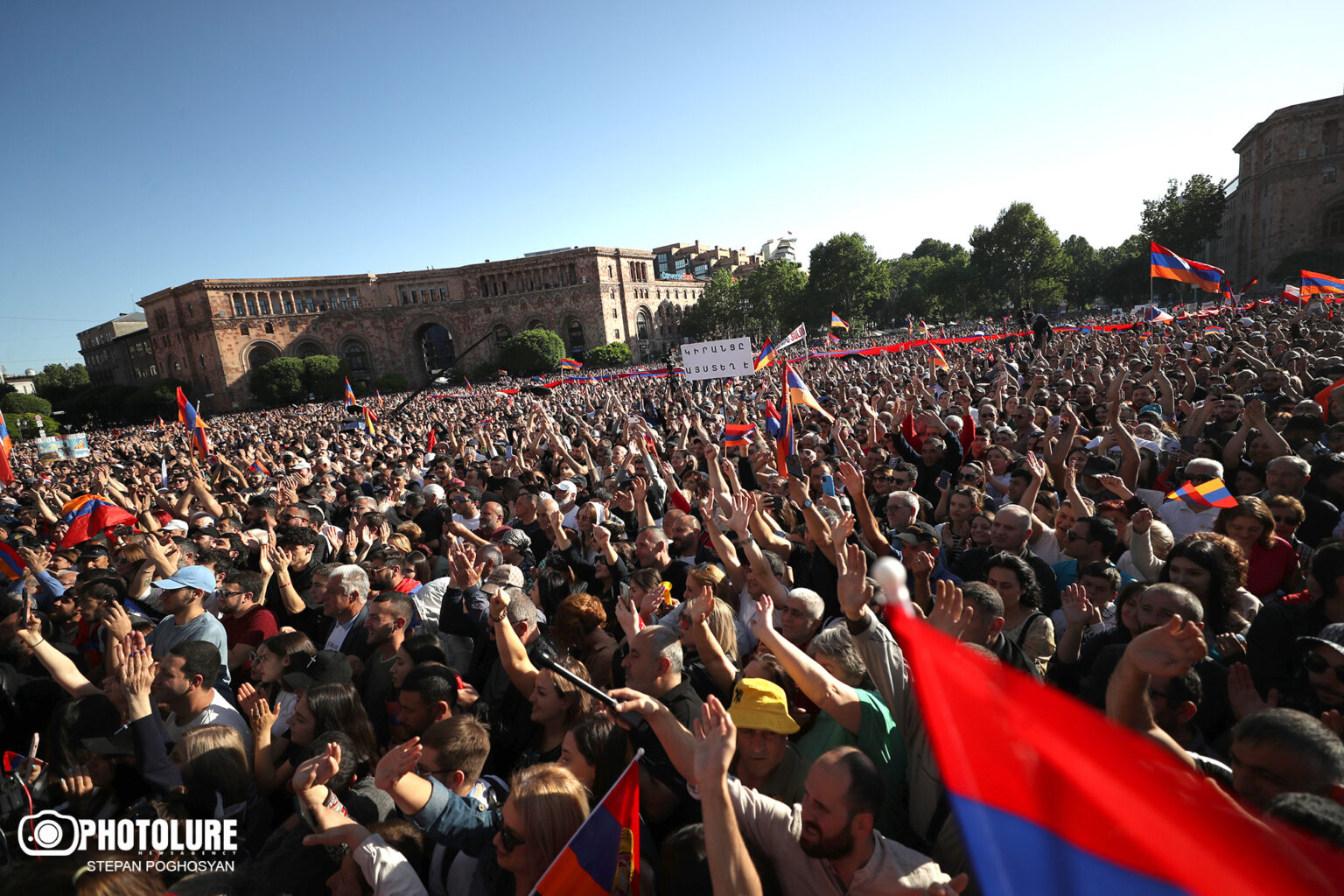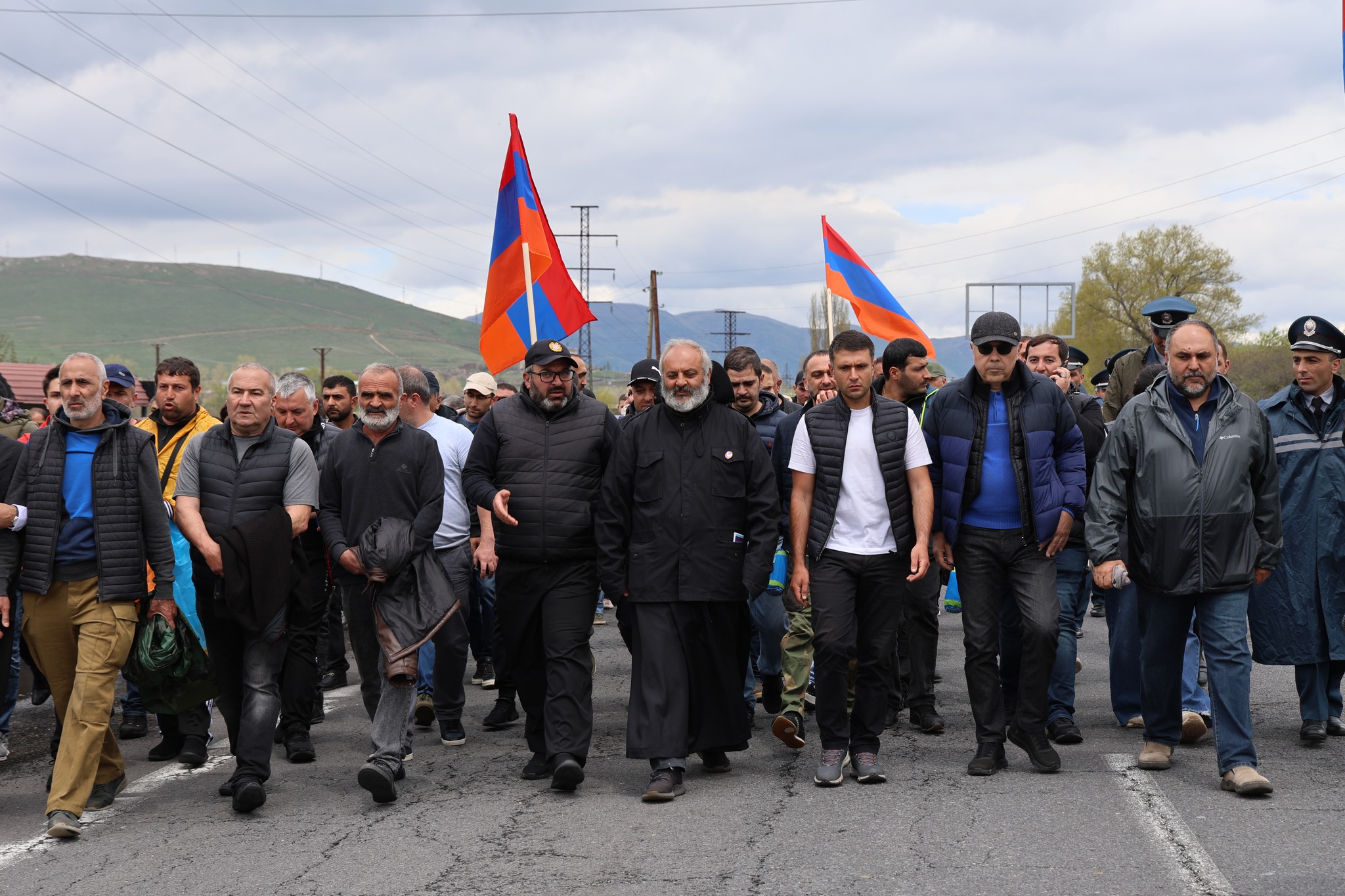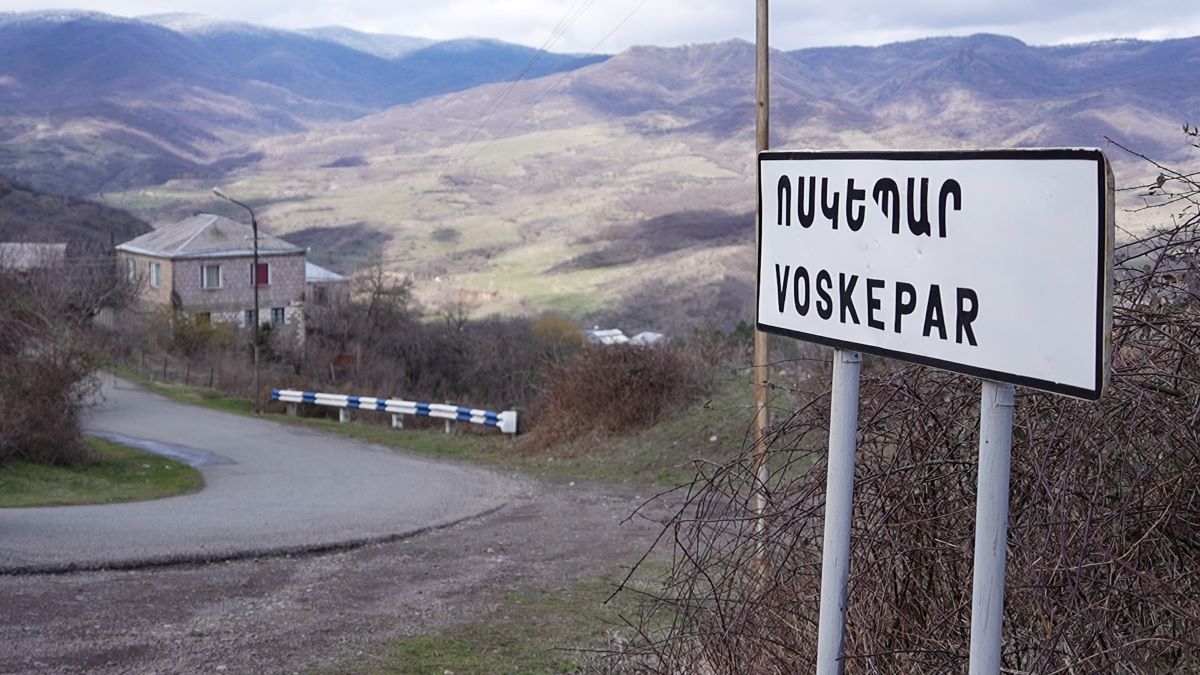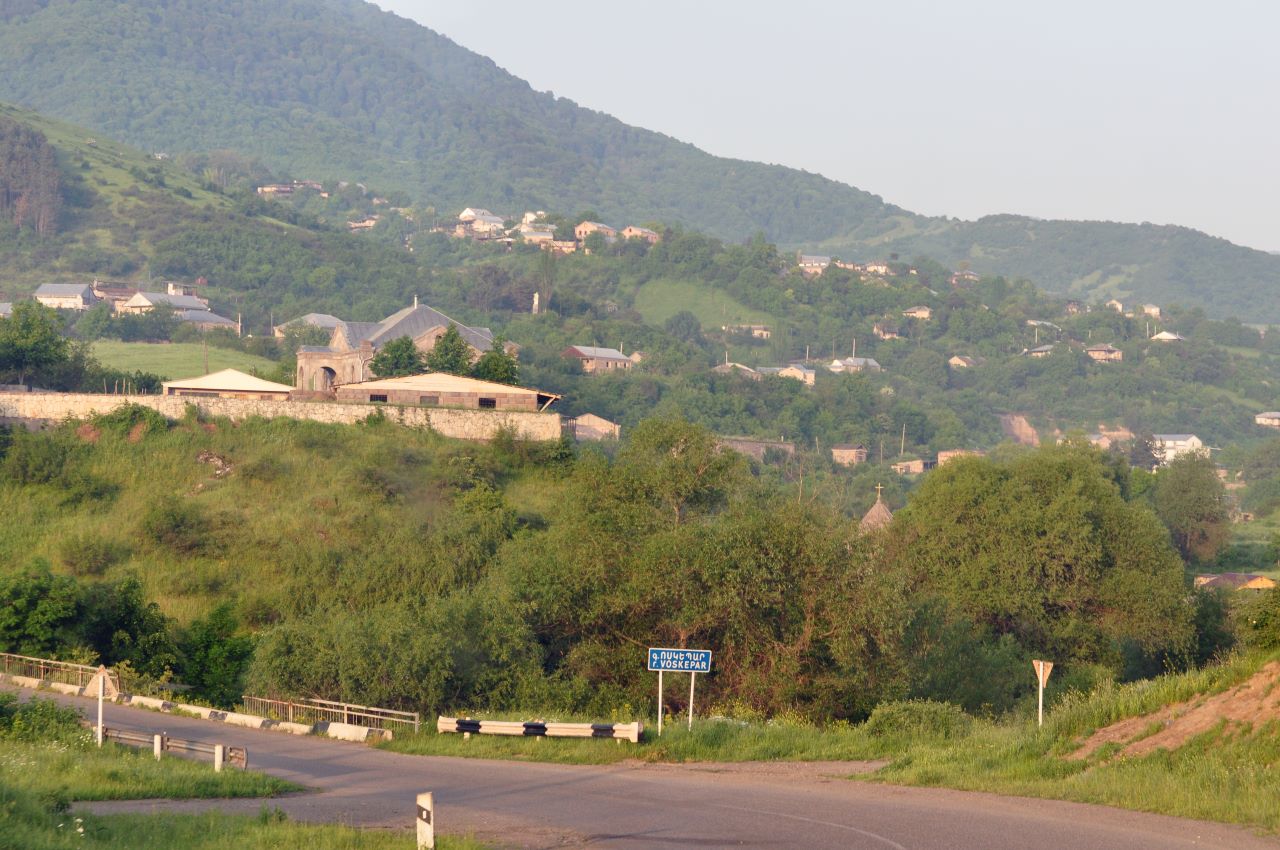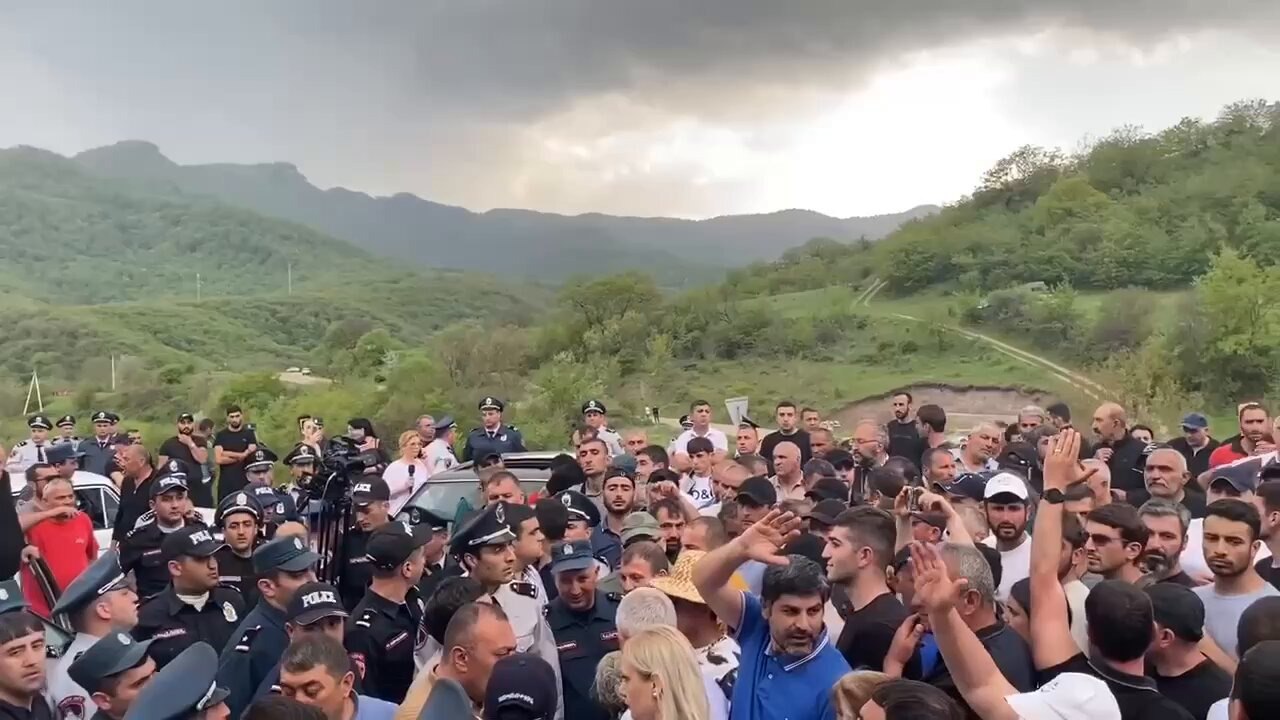Opinion: "Appointing archbishop as Armenia's prime minister is a wrong path"
Archbishop as PM candidate
The movement “Tavush for the Homeland” has announced its candidate for the position of prime minister of Armenia, archbishop Bagrat Galstanyan. The head of the Tavush Diocese of the Armenian Apostolic Church announced at a rally that he decided to “freeze” his spiritual service. The press service of the Catholicos reported that while Galstanyan will retain his episcopal rank, his “church and administrative service” will be suspended, meaning he will not lead the diocese.
The movement, which demands an end to border demarcation and the resignation of the current prime minister, had not named its candidate for the head of state until May 26. The Archbishop mentioned that “beloved and unloved names” were being discussed, emphasizing that he himself had no intention of becoming prime minister.
“The opposition couldn’t find a suitable candidate and decided to nominate the archbishop, which is the wrong decision from political, spiritual, and moral perspectives,” said political scientist Gurgen Simonyan to JAMnews.
This article includes the latest statements from the “Tavush for the Homeland” movement, protests in Yerevan, and a political analyst’s commentary.
- Clerical uprising or political interference in the country: what is happening in Yerevan? Opinions
- The opposition movement ‘undermines the sovereignty of the country’ – Armenian foreign minister
- “No critical mass in Yerevan’s streets, there will be no PM resignation.” Opinion
Rally not canceled despite natural disaster
On May 26, it was reported that the Debed and Aghstev rivers had overflowed, causing landslides on roads and in several settlements in the Lori and Tavush regions, resulting in fatalities.
However, the “Tavush for the Homeland” movement did not cancel the rally scheduled for that day.
The movement’s leader, archbishop Galstanyan, expressed his support for the residents of Lori and his Tavush congregation from Yerevan. He urged them not to participate in the rally, stating that “their mission today is to attend to their household affairs.”
The public organization “Union of Informed Citizens” estimated the number of protest participants. An hour after it began, 23,100 people were present in Republic Square and the surrounding areas.
“Decisive stage” of the movement begins
During the rally, archbishop Bagrat Galstanyan announced that the movement had entered its “decisive stage.” Responding to government claims that the movement had fizzled out, the clergyman emphasized that “it has not faded but has become more crystallized and purposeful.”
In his Sunday rally speech, archbishop Galstanyan stated that the movement had reached a critical phase.
Regarding the individual who should replace the current prime minister, he noted that this person should be “non-partisan.” He stressed that the new Prime Minister must form a transitional government with a clear action plan.
“The new government should strive for a real, stable, dignified, and long-term peace, excluding the use of force and threats, and resolve humanitarian issues related to the return of prisoners and the military-political leadership of Nagorno-Karabakh,” he declared.
According to Galstanyan, peace negotiations between Armenia and Azerbaijan must include the safe return of displaced persons and the protection of the rights and interests of Karabakh Armenians.
Concerning the delimitation and demarcation of the Armenian-Azerbaijani border, he stated that this process should follow the signing of a peace agreement.
The transitional government, according to the Archbishop, should also prepare for and ensure the fairness and transparency of snap elections, in which it will not participate.
After the rally, participants headed to the government residences where Nikol Pashinyan and his family live. The leader of the “Tavush for the Homeland” movement proposed that the current prime minister meet and discuss his “peaceful resignation” from office.
This step was criticized by deputy chief of the prime minister’s staff Taron Chakhoyan. In his social media post, he reminded that the prime minister had left for the disaster zone early in the morning: “This is well known to Vazgen [the secular name of the archbishop] Galstanyan, who headed to the government residences. Therefore, this march to the government residences has no other purpose than provocation.”
Why the opposition nominated Galstanyan for prime minister
In the matter of nominating Bagrat Galstanyan for the position of prime minister, all opposition members were unanimous, stated Gurgen Melikyan, an orientalist and participant in the protest movement.
“We understand that this is not an easy decision for the Archbishop, as it changes the entire course of his life. It’s a difficult decision, but it is part of his service,” he said.
The Archbishop himself announced that he “asked the Catholicos of All Armenians and his spiritual brothers to freeze his 30-year church service,” as he plans to take personal responsibility for the entire process.
Two days earlier, Galstanyan mentioned that during meetings with representatives of political parties and various sectors of society, the movement proposed nominating three candidates—”people who are respected in their field for their contributions, people who can be relied upon.” However, in the end, the choice fell on him.
“Bagrat Galstanyan cannot become prime minister by law”
Hovik Aghazaryan, a deputy from the ruling “Civil Contract” faction, reiterated why archbishop Galstanyan cannot become prime minister:
“He is a citizen of Canada, so regardless of his nomination, he has no legal grounds for holding this status.”
According to the constitution, the prime minister must have been solely a citizen of the Republic of Armenia for the past four years. This means that even if Galstanyan renounced his Canadian citizenship, his candidacy would not be valid. The opposition believes that such a scenario might be possible under societal pressure.
Aghazaryan emphasized that there should be no illusions about the ruling party voting for such an unlawful decision due to any circumstances. He stated that the dialogue with the “Tavush for the Homeland” movement is over:
“One side demands the resignation of the other side, and the other side ignores this demand. And that’s where this so-called dialogue ends.“
Acts of civil disobedience in Yerevan
Early in the morning on May 27, supporters of the “Tavush for the Homeland” movement began acts of civil disobedience in the capital, blocking central streets.
According to the Ministry of Internal Affairs, 273 people were detained “for failing to comply with lawful police orders.”
The previous day, May 26, Bagrat Galstanyan called on movement supporters to carry out acts of disobedience:
“We will make the Armenian authorities heed the demands of the people.”
Commentary
Nominating an archbishop for the position of prime minister was a mistake, according to political analyst Gurgen Simonyan:
“What does it mean to ‘freeze’ one’s service to the church? How is that possible? Is this a contract with God that can be frozen or thawed? The moral issues here are evident.”
Simonyan believes the movement is fading, and thus the notion of nominating the archbishop for prime minister under public pressure is unrealistic:
“There would need to be a national uprising, a mass mobilization, for the constitution to cease being imperative. This movement has not achieved a nationwide rise.”
In recent days, members of the movement have stopped discussing the procedure for impeaching the prime minister in Parliament, as required by law. The opposition deputies were short by just one vote, and no one joined them to bring this issue to the agenda.
“But there are forces within the movement that hold mandates in Parliament, right? If they resigned their mandates, Parliament would be automatically dissolved. Why don’t they resign? Because they are opportunists and conformists,” Simonyan asserts.
According to the political analyst, the forces acting as the opposition are “far from what is considered a classical opposition,” and their real agenda differs from what they publicly declare:
“Read their demands published by deputy Vahagn Aleksanyan. You’ll see that they engage in political bargaining. They have marginalized the movement, bringing people to the streets to serve their own situational, mercantile interests.”
Vahagn Aleksanyan, a deputy from the ruling “Civil Contract” faction, published on his Facebook page “three key demands of the movement led by the opposition archbishop”:
- “Do not make a sharp geopolitical shift (do not apply for EU membership);
- Cancel the ‘Academgorodok‘ project;
- Return the Matendaran church [repository of ancient books] and the settlements of Echmiadzin, Mughni, Yeghvard, Oshakan to the church.”
Aleksanyan emphasized: “That’s the whole story. The rest of the speeches and daily criticisms of the police are just meaningless noise to ensure the rank-and-file movement participants don’t focus on these key demands amidst the overall noise.”
“There can be no development or future for the ‘Tavush for the Homeland’ movement,” says Aleksanyan. According to him, “those who incite disorder will be punished, and the rest will realize that this is not the political reality worth engaging in.” The expert underscores that new forces are needed to address Armenia’s existing problems:
“The old forces [the former authorities now acting as the opposition] should not lead opposition movements.”










